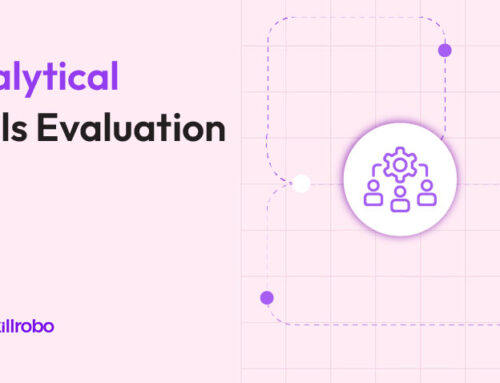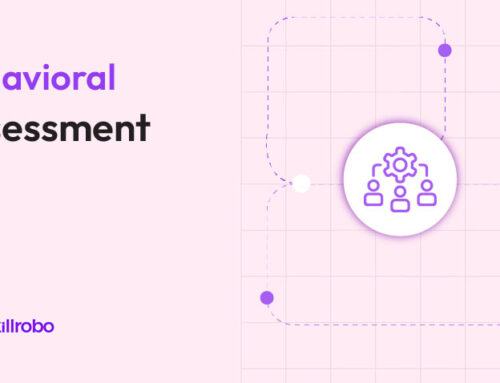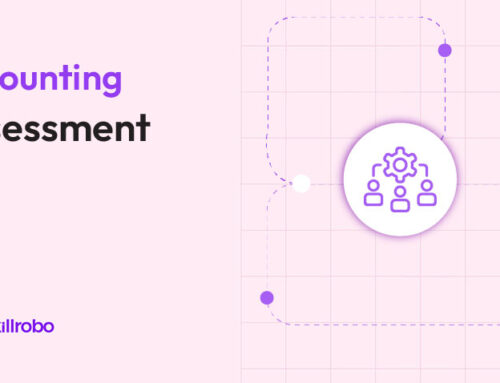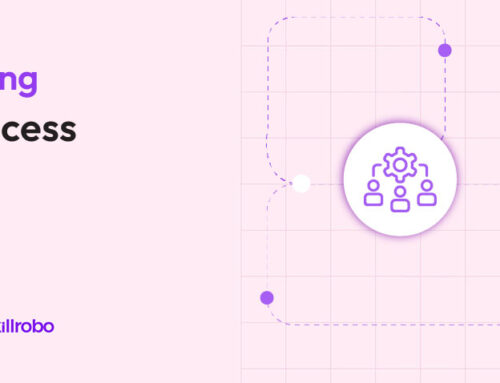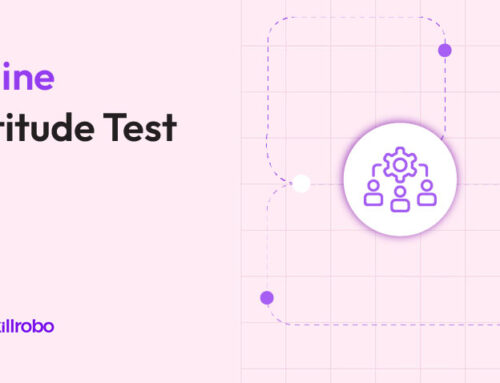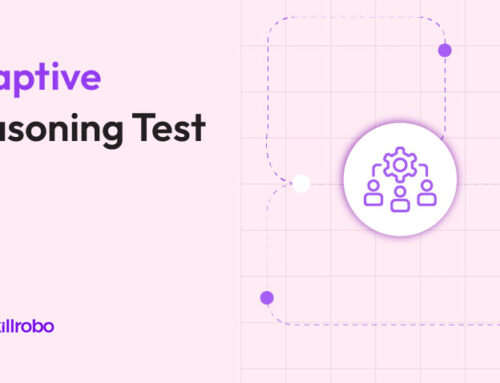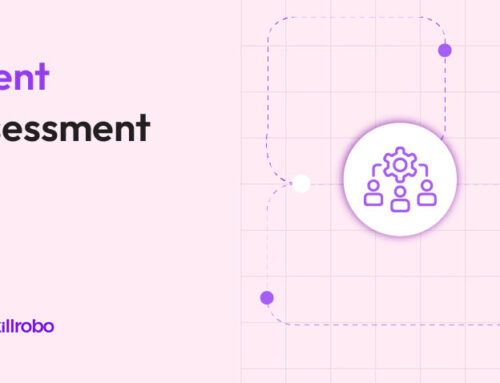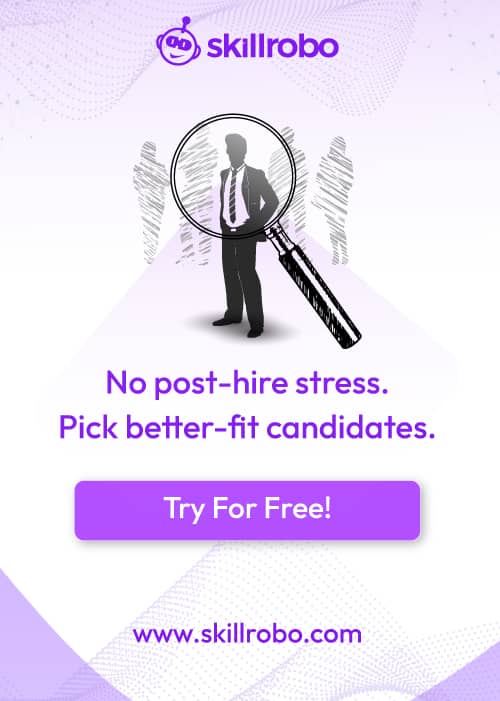Table of Contents
- Key Takeaways
- Addressing the Skill Gap with Smarter Hiring Strategies
- What are Assessments in the Hiring Process?
- Why do Employers use Pre-Employment Assessments for Hiring?
- Types of Assessments in the Hiring Process
- How to Choose the Right Assessment for Your Hiring
- Skillrobo – The Best Tool for All Types of Assessments
- Conclusion
Related articles
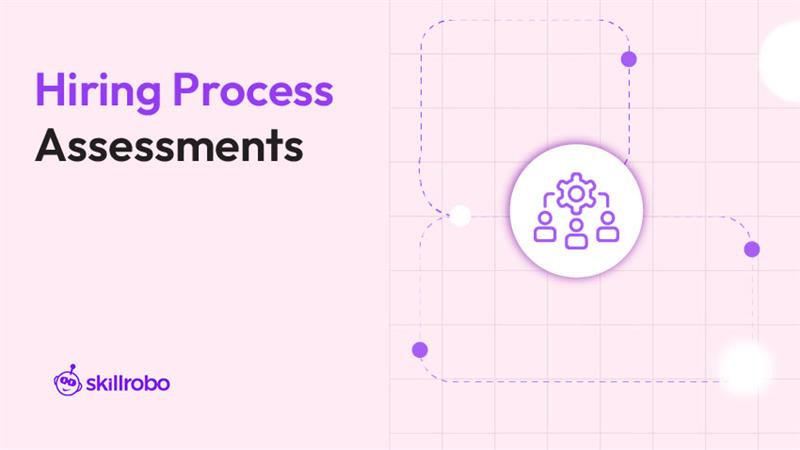
Key Takeaways
- Pre-employment assessments offer a standardized and objective method to evaluate a candidate’s skills, aptitude, personality, and job readiness during hiring.
- Using pre-employment testing tools helps reduce bad hires, speeds up screening, and ensures candidates are the right fit for the role.
- Employers rely on skills assessments to identify employee skill gaps, benchmark talent, and create targeted training and development plans.
- There are multiple assessment types, including personality, cognitive, behavioral, and coding tests tailored to different roles and business functions.
- Skillrobo’s customizable platform supports role-specific assessments, secure testing environments, and real-time analytics to enhance hiring accuracy and efficiency.
Addressing the Skill Gap with Smarter Hiring Strategies
A World Economic Forum report reveals that skill gaps continue to be high in various roles across industries. The growing complexity of modern job roles has heightened the demand for skilled professionals across industries. Recent trends show that sectors such as BFSI, technology services, and engineering are leading this surge, driven by rapid innovation and digital transformation. However, this demand has also revealed a widening skill gap, with many candidates falling short of the multifaceted competencies needed in today’s workforce. To overcome the skill gap, organizations are turning to pre-employment assessments that evaluate candidates beyond resumes, testing cognitive ability, problem-solving, behavioral traits, and job-specific skills. A well-rounded assessment approach ensures better hiring outcomes by identifying candidates who are both capable and future-ready.
What are Assessments in the Hiring Process?
Assessments in the hiring process refer to structured evaluations used to measure a candidate’s skills, knowledge, aptitude, and suitability for a specific role. These evaluations are typically conducted after initial resume screening and are designed to move beyond surface-level qualifications, providing objective insights into how well a candidate aligns with job requirements.
Modern hiring assessments may include a variety of formats such as cognitive ability tests, technical skill evaluations, personality profiling, and situational judgment scenarios. These tools help hiring teams validate capabilities that aren’t always visible on a resume, like problem-solving skills, communication style, or domain-specific expertise.
By integrating online assessment platforms into the recruitment workflow, employers can efficiently screen large volumes of applicants while maintaining consistency and fairness. These assessments not only improve hiring accuracy but also contribute to a faster, bias-reduced, and more predictive selection process, making them a critical component of modern talent acquisition strategies.
Why do Employers use Pre-Employment Assessments for Hiring?
Traditional interviews offer limited insights when it comes to evaluating a candidate’s true job readiness. As organizations scale, relying on resumes or unstructured conversations can result in mis-hires, which increase turnover, impact productivity, and drive up onboarding costs. Pre-employment assessments provide a smarter alternative by delivering objective, data-driven insights into candidate skills, personality traits, and aptitude.
Modern hiring strategies integrate skills assessment tools to enhance decision-making and build high-performing teams. Here’s why employers are making the switch:
-
Faster Screening: Online platforms like pre-employment assessment tests on Skillrobo help recruiters assess large candidate pools efficiently, speeding up shortlisting without compromising quality.
-
Holistic Evaluation: Pre-built assessments can measure everything from cognitive ability to domain expertise and communication, offering a complete view of each applicant.
-
Internal Talent Development: With tools such as the customized employee skill assessment strategy, organizations can also assess current employees to identify gaps and drive targeted upskilling.
-
Departmental Insights: Team-wide testing highlights strengths and development areas across business units, helping guide workforce planning.
-
Benchmarking: Results can be mapped to industry benchmarks, ensuring your talent pool remains competitive and aligned with evolving role expectations.
When used effectively, skills assessment software becomes a critical driver of hiring accuracy, efficiency, and long-term retention.
Types of Assessments in the Hiring Process
Various types of assessments are available for the hiring team to choose from, depending on the skill requirements of the role. Choosing the right testing assessment improves the quality and speed of hiring significantly. Here are 10 types of skill assessments listed below:
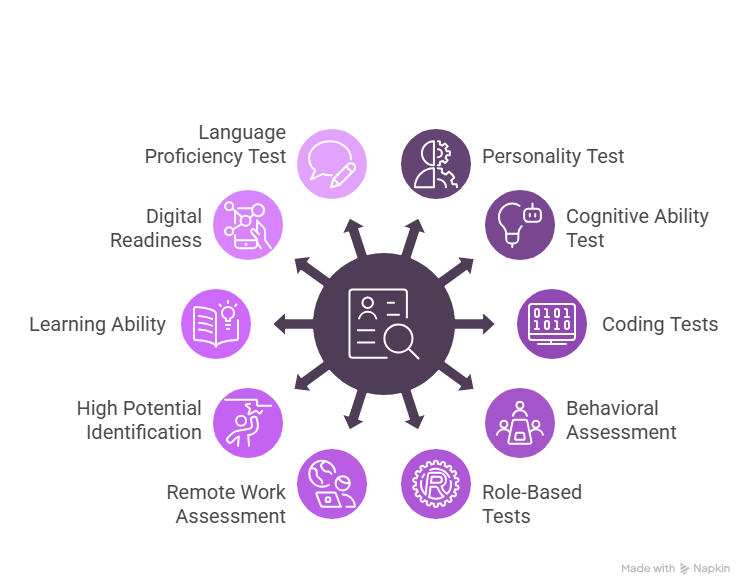
1) Personality test
In addition to matching the skills of the candidate with respect to the role, the hiring team must also ensure that the candidate’s personality and aptitude match the requirements of the role. HR professionals use personality tests to maximize employee potential. These tests give a good idea of workplace patterns, relevant characteristics, and traits, and help gauge people’s responses to different situations. Personality tests are divided into two categories: the bright side and the dark side.
The former type is based on the Big Five Personality Traits of the Five-Factor Model. The bright side of human traits like openness, conscientiousness, extraversion, neuroticism, and agreeableness are evaluated in the bright side assessment. Certain characteristics of a person are triggered under challenging circumstances, which offer insights into how effectively the person tackles these circumstances.
2) Cognitive ability test
Critical reasoning/thinking, verbal reasoning, numerical ability, decision-making, and problem-solving skills are categorized as cognitive abilities. Cognitive assessment is an indicator of the intelligence quotient (IQ) of the person. Research has established a clear correlation between cognitive ability and work performance. A high score in cognitive ability translates to high job performance.
3) Coding tests
Jobs in the software industry require a thorough evaluation of the coding skills of candidates. The best technical talent can be identified through exhaustive coding tests with questions relevant to the role, ensuring candidates can solve real-world problems, write clean code, and understand system-level thinking essential for high-performance development environments.
4) Behavioural Assessment
The ability to gel into the work environment and company culture can be effectively gauged by behavioral assessments. A simulated work environment is presented to the candidate to gauge how well they operate and cope with challenges. Possible courses of action for each work-related scenario are provided for the candidate to choose from. Their choice throws light on their attitude and demeanor. Situational judgment tests, in-box exercises, caselet sets, and case study simulators are different types of online behavior assessments. Offline behavioral assessments include group discussion, behavioral interviews, in-tray exercises, group activities, case presentations, and role plays.
5) Role-based tests
Role-based tests are customized for job functions and roles. These tests evaluate the domain expertise, aptitude, and behavioral attributes of candidates. Role-based tests are commonly used for business functions like law, retail, BPO, engineering, financial services, media/PR, accounting, and blue-collar jobs.
6) Remote work assessment
Remote work was once considered a good-to-have skill, but the way the COVID pandemic has changed all that. Remote work skills and competencies are required in almost any industry and function. These assessments gauge the candidate’s readiness and preparedness to ensure business continuity and productivity through remote working. The behavioral competencies required to work remotely are gauged by these tests.
7) High potential identification
The development of individual employees drives organizational growth. By tapping into the job prospect’s high potential capability, businesses can sustain rapid transformation and limited resource availability situations. Pre-employment assessments are clear differentiators of high-potential employees.
8) Learning ability
Employees with a steep learning curve help improve productivity levels. Learning ability or mental agility is one of the most desired competencies in prospective hires to sustain in a complex and dynamic business landscape. An organization powered with a learning agile workforce has:
- improved productivity
- future-ready workforce
- Higher organizational efficiency and productivity
- more number of high-potential employees
Job prospects with a high score in learning ability tests respond actively to new work conditions and evaluate their experiences objectively.
9) Digital readiness
In a world that is surrounded by digital technology, digital readiness and awareness are a must-have skill for performing any role in any industry. For businesses to survive in the digital world, every aspect of the business – from strategy to processes- should embrace digital transformation. A digital readiness assessment helps evaluate how aware and ready prospects are to embrace digital technology.
10) Language proficiency test
Proficiency in the English language is required for jobs at all levels, from CEO to clerk. English is the preferred language for communication across the world. Verbal and written proficiency in the English language must be evaluated during the hiring process. Any customer-centric role requires excellent communication skills. Pronunciation, grammar, fluency, and listening comprehension are the main types of language-based evaluations.
How to Choose the Right Assessment for Your Hiring
Selecting the right assessment is critical to ensuring your hiring process is both efficient and effective. With so many test types available—ranging from cognitive ability and personality profiling to role-based skill evaluations—it’s important to align your choice with the specific demands of the role you’re hiring for.
Steps to choose the right assessment include:
Step 1: Define the Role Requirements – Start by outlining the key responsibilities, technical competencies, and soft skills needed for the role. This ensures the assessment aligns directly with on-the-job demands.
Step 2: Identify the Skill Priorities – Decide which skills are non-negotiable (must-have) and which are desirable (nice-to-have). This helps you choose between different types of assessments, such as cognitive, behavioral, or role-based.
Step 3: Match Assessment Types to the Role
-
Technical roles: Use coding tests, domain-specific tasks, or problem-solving simulations.
-
Customer-facing roles: Use personality profiling and situational judgment tests.
-
Leadership positions: Opt for behavioral assessments and case-based exercises.
Step 4: Consider Candidate Volume – If hiring at scale, prioritize online platforms that support bulk testing, real-time analytics, and automated scoring. This ensures speed and consistency across applicants.
Step 5: Ensure Integration and Scalability – Choose a platform like Skillrobo that integrates with your ATS and offers customizable, scalable assessments for various roles.
Step 6: Pilot and Calibrate – Test your chosen assessment internally with current employees. This helps you benchmark performance and refine the test before using it with candidates.
Step 7: Monitor and Optimize – Track assessment performance over time. Review how test scores correlate with job performance and adjust your assessments for ongoing accuracy.
Skillrobo – The Best Tool for All Types of Assessments
Skillrobo stands out as the most versatile platform for conducting different types of pre-employment assessments across roles and industries. Whether you’re evaluating technical expertise, soft skills, cognitive abilities, or job-specific competencies, Skillrobo offers a fully customizable test library to suit every hiring need. The platform empowers hiring teams to build tailored assessments quickly, with intuitive tools and ready-to-use templates. Real-time analytics and instant performance reports support data-driven decision-making, while a secure browser environment ensures fair testing conditions. With advanced proctoring and activity monitoring, Skillrobo guarantees integrity throughout the assessment process, making it the ideal choice for comprehensive, scalable, and role-specific candidate evaluation.
Conclusion
Pre-employment skill assessment tests are handy tools for hiring teams to make quick and informed hiring decisions. Interview assessment tools improve the quality of hire and help identify high-performance candidates. Skill gaps in the organization can be effectively identified through skill assessments. Hiring teams can choose from various types of assessments depending on the skill requirements of the role. You can create your online assessment by signing up for Skillrobo. The free trial gives you a peek into the hiring assessment capabilities of the software.

Key Takeaways
- Pre-employment assessments offer a standardized and objective method to evaluate a candidate’s skills, aptitude, personality, and job readiness during hiring.
- Using pre-employment testing tools helps reduce bad hires, speeds up screening, and ensures candidates are the right fit for the role.
- Employers rely on skills assessments to identify employee skill gaps, benchmark talent, and create targeted training and development plans.
- There are multiple assessment types, including personality, cognitive, behavioral, and coding tests tailored to different roles and business functions.
- Skillrobo’s customizable platform supports role-specific assessments, secure testing environments, and real-time analytics to enhance hiring accuracy and efficiency.
Addressing the Skill Gap with Smarter Hiring Strategies
A World Economic Forum report reveals that skill gaps continue to be high in various roles across industries. The growing complexity of modern job roles has heightened the demand for skilled professionals across industries. Recent trends show that sectors such as BFSI, technology services, and engineering are leading this surge, driven by rapid innovation and digital transformation. However, this demand has also revealed a widening skill gap, with many candidates falling short of the multifaceted competencies needed in today’s workforce. To overcome the skill gap, organizations are turning to pre-employment assessments that evaluate candidates beyond resumes, testing cognitive ability, problem-solving, behavioral traits, and job-specific skills. A well-rounded assessment approach ensures better hiring outcomes by identifying candidates who are both capable and future-ready.
What are Assessments in the Hiring Process?
Assessments in the hiring process refer to structured evaluations used to measure a candidate’s skills, knowledge, aptitude, and suitability for a specific role. These evaluations are typically conducted after initial resume screening and are designed to move beyond surface-level qualifications, providing objective insights into how well a candidate aligns with job requirements.
Modern hiring assessments may include a variety of formats such as cognitive ability tests, technical skill evaluations, personality profiling, and situational judgment scenarios. These tools help hiring teams validate capabilities that aren’t always visible on a resume, like problem-solving skills, communication style, or domain-specific expertise.
By integrating online assessment platforms into the recruitment workflow, employers can efficiently screen large volumes of applicants while maintaining consistency and fairness. These assessments not only improve hiring accuracy but also contribute to a faster, bias-reduced, and more predictive selection process, making them a critical component of modern talent acquisition strategies.
Why do Employers use Pre-Employment Assessments for Hiring?
Traditional interviews offer limited insights when it comes to evaluating a candidate’s true job readiness. As organizations scale, relying on resumes or unstructured conversations can result in mis-hires, which increase turnover, impact productivity, and drive up onboarding costs. Pre-employment assessments provide a smarter alternative by delivering objective, data-driven insights into candidate skills, personality traits, and aptitude.
Modern hiring strategies integrate skills assessment tools to enhance decision-making and build high-performing teams. Here’s why employers are making the switch:
-
Faster Screening: Online platforms like pre-employment assessment tests on Skillrobo help recruiters assess large candidate pools efficiently, speeding up shortlisting without compromising quality.
-
Holistic Evaluation: Pre-built assessments can measure everything from cognitive ability to domain expertise and communication, offering a complete view of each applicant.
-
Internal Talent Development: With tools such as the customized employee skill assessment strategy, organizations can also assess current employees to identify gaps and drive targeted upskilling.
-
Departmental Insights: Team-wide testing highlights strengths and development areas across business units, helping guide workforce planning.
-
Benchmarking: Results can be mapped to industry benchmarks, ensuring your talent pool remains competitive and aligned with evolving role expectations.
When used effectively, skills assessment software becomes a critical driver of hiring accuracy, efficiency, and long-term retention.
Types of Assessments in the Hiring Process
Various types of assessments are available for the hiring team to choose from, depending on the skill requirements of the role. Choosing the right testing assessment improves the quality and speed of hiring significantly. Here are 10 types of skill assessments listed below:

1) Personality test
In addition to matching the skills of the candidate with respect to the role, the hiring team must also ensure that the candidate’s personality and aptitude match the requirements of the role. HR professionals use personality tests to maximize employee potential. These tests give a good idea of workplace patterns, relevant characteristics, and traits, and help gauge people’s responses to different situations. Personality tests are divided into two categories: the bright side and the dark side.
The former type is based on the Big Five Personality Traits of the Five-Factor Model. The bright side of human traits like openness, conscientiousness, extraversion, neuroticism, and agreeableness are evaluated in the bright side assessment. Certain characteristics of a person are triggered under challenging circumstances, which offer insights into how effectively the person tackles these circumstances.
2) Cognitive ability test
Critical reasoning/thinking, verbal reasoning, numerical ability, decision-making, and problem-solving skills are categorized as cognitive abilities. Cognitive assessment is an indicator of the intelligence quotient (IQ) of the person. Research has established a clear correlation between cognitive ability and work performance. A high score in cognitive ability translates to high job performance.
3) Coding tests
Jobs in the software industry require a thorough evaluation of the coding skills of candidates. The best technical talent can be identified through exhaustive coding tests with questions relevant to the role, ensuring candidates can solve real-world problems, write clean code, and understand system-level thinking essential for high-performance development environments.
4) Behavioural Assessment
The ability to gel into the work environment and company culture can be effectively gauged by behavioral assessments. A simulated work environment is presented to the candidate to gauge how well they operate and cope with challenges. Possible courses of action for each work-related scenario are provided for the candidate to choose from. Their choice throws light on their attitude and demeanor. Situational judgment tests, in-box exercises, caselet sets, and case study simulators are different types of online behavior assessments. Offline behavioral assessments include group discussion, behavioral interviews, in-tray exercises, group activities, case presentations, and role plays.
5) Role-based tests
Role-based tests are customized for job functions and roles. These tests evaluate the domain expertise, aptitude, and behavioral attributes of candidates. Role-based tests are commonly used for business functions like law, retail, BPO, engineering, financial services, media/PR, accounting, and blue-collar jobs.
6) Remote work assessment
Remote work was once considered a good-to-have skill, but the way the COVID pandemic has changed all that. Remote work skills and competencies are required in almost any industry and function. These assessments gauge the candidate’s readiness and preparedness to ensure business continuity and productivity through remote working. The behavioral competencies required to work remotely are gauged by these tests.
7) High potential identification
The development of individual employees drives organizational growth. By tapping into the job prospect’s high potential capability, businesses can sustain rapid transformation and limited resource availability situations. Pre-employment assessments are clear differentiators of high-potential employees.
8) Learning ability
Employees with a steep learning curve help improve productivity levels. Learning ability or mental agility is one of the most desired competencies in prospective hires to sustain in a complex and dynamic business landscape. An organization powered with a learning agile workforce has:
- improved productivity
- future-ready workforce
- Higher organizational efficiency and productivity
- more number of high-potential employees
Job prospects with a high score in learning ability tests respond actively to new work conditions and evaluate their experiences objectively.
9) Digital readiness
In a world that is surrounded by digital technology, digital readiness and awareness are a must-have skill for performing any role in any industry. For businesses to survive in the digital world, every aspect of the business – from strategy to processes- should embrace digital transformation. A digital readiness assessment helps evaluate how aware and ready prospects are to embrace digital technology.
10) Language proficiency test
Proficiency in the English language is required for jobs at all levels, from CEO to clerk. English is the preferred language for communication across the world. Verbal and written proficiency in the English language must be evaluated during the hiring process. Any customer-centric role requires excellent communication skills. Pronunciation, grammar, fluency, and listening comprehension are the main types of language-based evaluations.
How to Choose the Right Assessment for Your Hiring
Selecting the right assessment is critical to ensuring your hiring process is both efficient and effective. With so many test types available—ranging from cognitive ability and personality profiling to role-based skill evaluations—it’s important to align your choice with the specific demands of the role you’re hiring for.
Steps to choose the right assessment include:
Step 1: Define the Role Requirements – Start by outlining the key responsibilities, technical competencies, and soft skills needed for the role. This ensures the assessment aligns directly with on-the-job demands.
Step 2: Identify the Skill Priorities – Decide which skills are non-negotiable (must-have) and which are desirable (nice-to-have). This helps you choose between different types of assessments, such as cognitive, behavioral, or role-based.
Step 3: Match Assessment Types to the Role
-
Technical roles: Use coding tests, domain-specific tasks, or problem-solving simulations.
-
Customer-facing roles: Use personality profiling and situational judgment tests.
-
Leadership positions: Opt for behavioral assessments and case-based exercises.
Step 4: Consider Candidate Volume – If hiring at scale, prioritize online platforms that support bulk testing, real-time analytics, and automated scoring. This ensures speed and consistency across applicants.
Step 5: Ensure Integration and Scalability – Choose a platform like Skillrobo that integrates with your ATS and offers customizable, scalable assessments for various roles.
Step 6: Pilot and Calibrate – Test your chosen assessment internally with current employees. This helps you benchmark performance and refine the test before using it with candidates.
Step 7: Monitor and Optimize – Track assessment performance over time. Review how test scores correlate with job performance and adjust your assessments for ongoing accuracy.
Skillrobo – The Best Tool for All Types of Assessments
Skillrobo stands out as the most versatile platform for conducting different types of pre-employment assessments across roles and industries. Whether you’re evaluating technical expertise, soft skills, cognitive abilities, or job-specific competencies, Skillrobo offers a fully customizable test library to suit every hiring need. The platform empowers hiring teams to build tailored assessments quickly, with intuitive tools and ready-to-use templates. Real-time analytics and instant performance reports support data-driven decision-making, while a secure browser environment ensures fair testing conditions. With advanced proctoring and activity monitoring, Skillrobo guarantees integrity throughout the assessment process, making it the ideal choice for comprehensive, scalable, and role-specific candidate evaluation.
Conclusion
Pre-employment skill assessment tests are handy tools for hiring teams to make quick and informed hiring decisions. Interview assessment tools improve the quality of hire and help identify high-performance candidates. Skill gaps in the organization can be effectively identified through skill assessments. Hiring teams can choose from various types of assessments depending on the skill requirements of the role. You can create your online assessment by signing up for Skillrobo. The free trial gives you a peek into the hiring assessment capabilities of the software.



